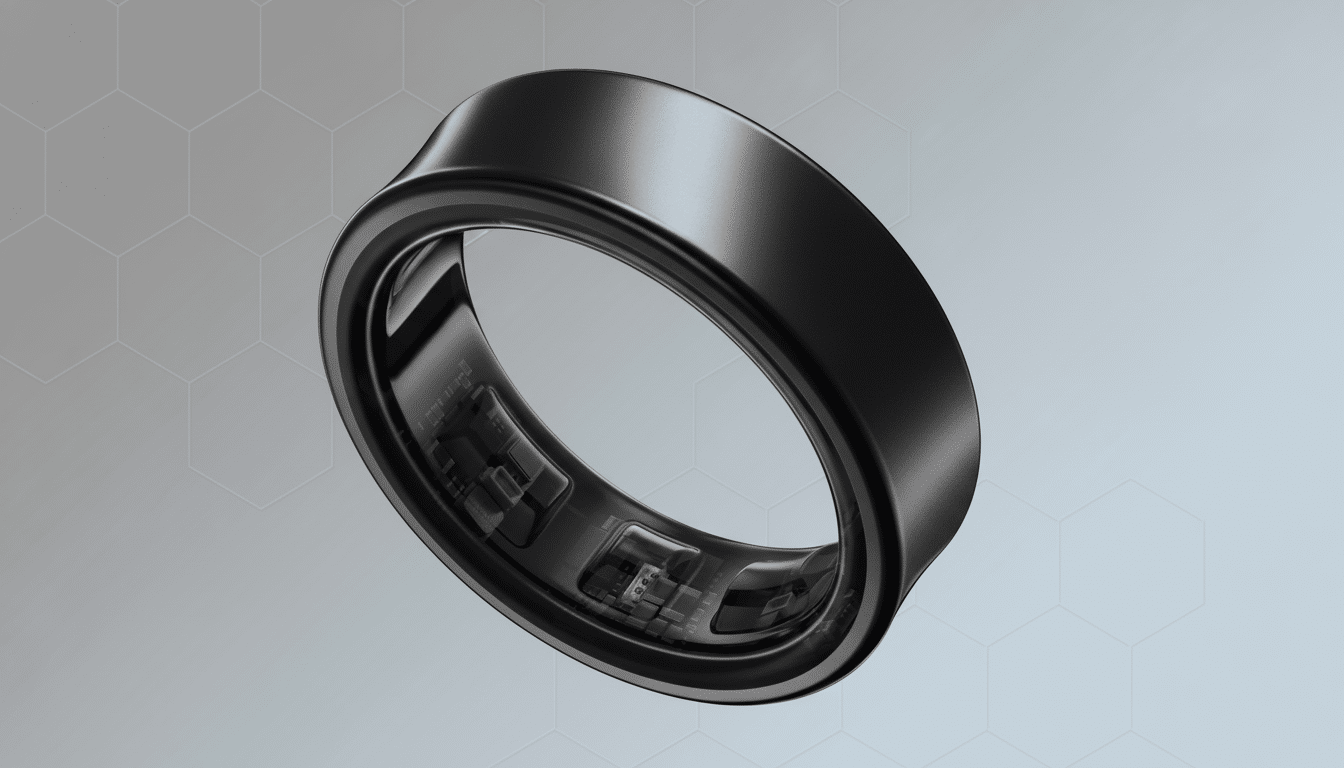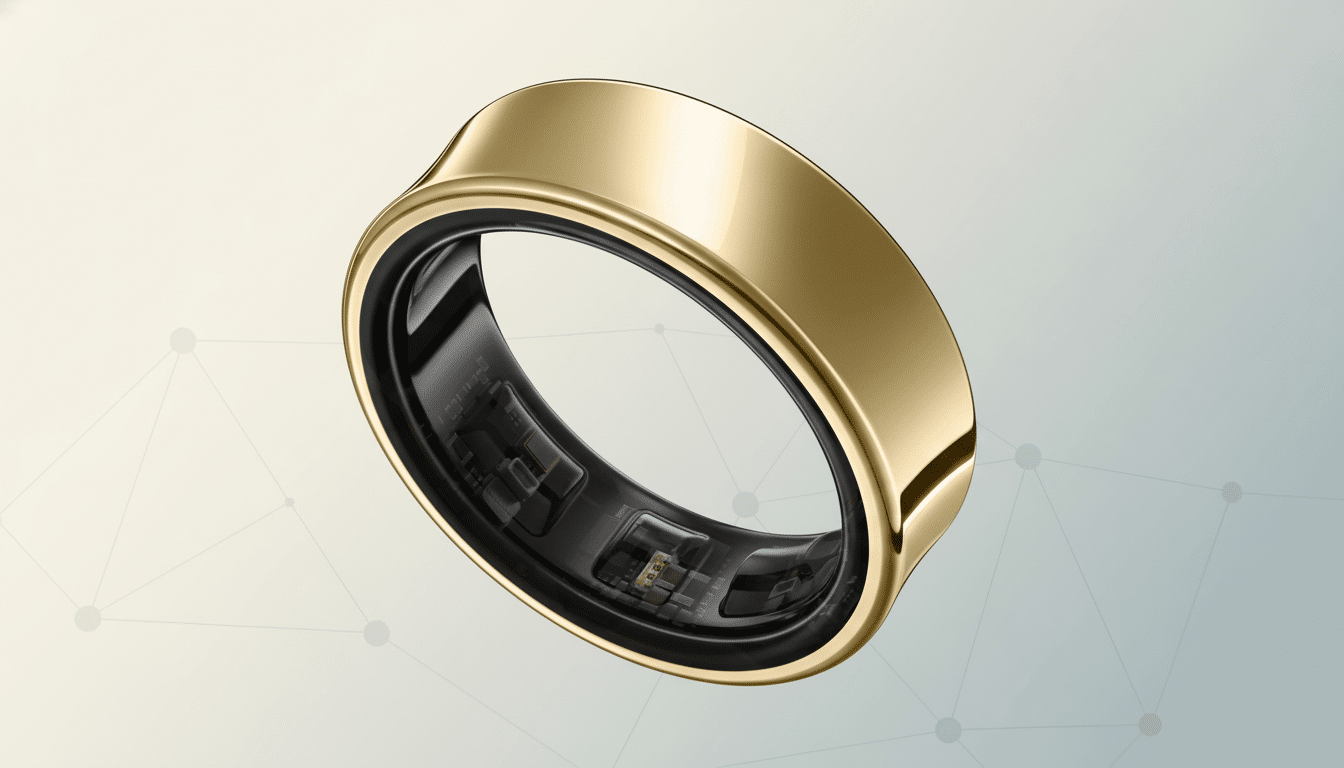I’ve been wearing Samsung’s Galaxy Ring night and day to see how well it captures the two things most people find hard to quantify without a lab — sleep quality and stress. My conclusion, after a couple of weeks using the thing: This is one of the easiest low-friction methods to assemble valuable health trends and it just so happens to have been marked down $134 at major retailers, making it about $266 down from its usual $399. For no subscription fee, that’s a value story that is pretty hard to pass up.
What My Nights With the Ring Were Like for Sleep
Sleep monitoring is perhaps where rings have their moment, and the Galaxy Ring made it so. I don’t usually wear watches to bed so as not to feel too groggy; yet I’m worried about the extra bulk as well as that bright pulse sensor. The ring, on the other hand, vanishes into your finger—lightweight, narrow and only occasionally flashing up its internal LEDs. Over a seven-night span not long ago, it captured my average sleep time at 7 hours and 12 minutes — close to the mark I was tallying in a journal and on a bedside clock.

The Galaxy Ring’s sleep score includes total tries to sleep, time sleeping, disturbances and heart rate variability. Twice, after two nights of working late, my score dropped below 70 and the device showed me I’d had a shorter-than-usual REM share. That fits with what sleep researchers observe: less sleep equals a lower proportion of REM and declining cognitive performance the next day. The American Academy of Sleep Medicine, for instance, advises that adults need to get seven to nine hours per night; the Centers for Disease Control and Prevention estimates about one in three U.S. adults fall short of that goal. In that sense, a tap on your finger reminding you to preserve bedtime is not just pleasant to have — it’s an act of public health on your finger.
No consumer wearable can substitute for polysomnography, but as far as at-home monitoring goes, the ring’s estimates felt reliable. Studies published in Sleep Medicine Reviews indicate that contemporary wearables are generally able to estimate total sleep time within tens of minutes of laboratory estimates, whereas there is more variability regarding staging. The Galaxy Ring recorded my patterns — that I was going to bed later and getting up earlier, and that I had some shaky nights of sleep — with enough consistency that it actually altered my behavior. That’s the real test.
Stress Tracking That Actually Nudges Behavior
Stress is a bit more subjective, but the ring relies on heart rate variability, resting heart rate and activity to assess strain, providing a daily “energy” or readiness-measured score. Other days, on the 24th consecutive Zoom call and in the midst of a punishing interval run, my morning score plummeted and it told me maybe I should take it easy — advice I ignored, regretted and then promptly listened to in mid-afternoon when all focus cratered. I took the other day’s advice to substitute intervals for a walk and mobility work, then concluded with an elevated HRV baseline.
Physiologically, that makes sense. The European Society of Cardiology identified a decrease in HRV as an indicator linked to stress and cardiovascular risk. The ring is not a medical device at all, but by serving as a trend tool it prompted micro-adjustments — going to bed earlier, running slightly less far knowing I wouldn’t hit the target for my heart rate and breathing during a tempo run five minutes shorter than usual — that added up to steadier scores over the two-week period.
Battery Life and Design That Just Work Day to Day
I got around six and a half days per charge with sleep and stress tracking on at all times. That matches Samsung’s promise of up to a week (or even two in some circumstances) and easily outlasts most smartwatches for overnight wear. A pocket-sized charging case makes top-ups feel as effortless as docking earbuds; usually I went from 10 percent or so to full in under 90 minutes.
It is also well made, with a polished build that has a smooth interior and low profile, so it didn’t catch on bedding or resistance bands.
It’s waterproof enough to take into the shower or for laps at the pool, and the sizing kit made it a snug fit without any skin irritation. For sleep in particular, the comfort gain over wrist wearables is substantial: I never woke up to reposition it.

Samsung Health Integration And Key Features
Data flows into Samsung Health, where in addition to workouts you’ll see sleep stages, HRV trends, skin temperature variance and stress insights. Auto-detected activities reliably picked up my walks and gentle runs, with manual entries for strength sessions. The trends are displayed, and temperature also supports cycle tracking, which Samsung has been doing across its wearables with algorithms that have been around.
The ecosystem benefit is tangible if you already happen to be using Samsung Health: one dashboard, fewer apps and no monthly fee to gain access to all of your data. That stands in contrast to the more established alternatives, which require membership fees for continuing access to detailed insights.
The Deal and the Value Proposition Right Now
Drawn with an apparent goal of putting up a fight to premium smart rings, the Galaxy Ring has that aspiration. As it is, I’m looking at the price tag of around $266 currently — $134 off — and that alters the calculus. Take into account that there are no subscription fees and that the device has a long battery life, though, and total cost of ownership compares more favorably with rivals over a year or two.
If your focus is on sleep and practical stress coaching without wearing a watch to bed, this is a solid purchase at the current sale price. Samsung Health’s biggest fans are sure to be Google phone owners.
Who It’s For and What To Expect Before Buying
Opt for the Galaxy Ring if you have an aversion to sleeping with a watch, you need it to last multiple days on a charge and you want trend-centric coaching over playing with gadgets. Look for good-enough sleep timing, useful stress and readiness cues, comfortable 24/7 wear and one clean view of your health data in a sole app. Don’t go in expecting clinical diagnostics or perfect sleep staging; consider this a tool to help guide habits, not deliver a diagnosis.
The Galaxy Ring in short did what good wearables are supposed to do, it faded into the background while silently making my nights (and by extension days) better.
At $134 off, it’s a no-brainer recommendation for anyone serious about their sleep and stress who is looking for a discreet, non-subscription tool.

